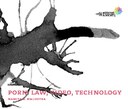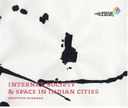Posts

The Digital Other
— by Nishant Shah — last modified May 14, 2015 12:07 PMBased on my research on young people in the Global South, I want to explore new ways of thinking about the Digital Native. One of the binaries posited as the Digital ‘Other’ -- ie, a non-Digital Native -- is that of a Digital Immigrant or Settler.
The Last Cultural Mile
— by kaeru — last modified Apr 03, 2015 10:59 AMAshish’s monograph follows the career of a priori contradiction, one that only mandates a state mechanism to perform an act of delivery, and then disqualifies the state from performing that very act effectively. This contradiction which he names as the Last Mile problem is a conceptual hurdle, not a physical one and when put one way, the Last Mile is unbridgeable, when put another, it is being bridged all the time.

Technology, Social Justice and Higher Education
— by Prasad Krishna — last modified Mar 30, 2015 02:54 PMSince the last two years, we at the Centre for Internet and Society, have been working with the Higher Education Innovation and Research Applications at the Centre for the Study of Culture and Society, on a project called Pathways to Higher Education, supported by the Ford Foundation.

Learn it Yourself
— by Nishant Shah — last modified May 14, 2015 12:08 PMThe peer-to-peer world of online learning encourages conversations and reciprocal learning, writes Nishant Shah in an article published in the Indian Express on 30 October 2011.

In Search of the Other: Decoding Digital Natives
— by Nishant Shah — last modified May 14, 2015 12:12 PMThis is the first post of a research inquiry that questions the ways in which we have understood the Youth-Technology-Change relationship in the contemporary digital world, especially through the identity of ‘Digital Native’. Drawing from three years of research and current engagements in the field, the post begins a critique of how we need to look at the outliers, the people on the fringes in order to unravel the otherwise celebratory nature of discourse about how the digital is changing the world.
Mobility Shifts 2011 — An International Future of Learning Summit
— by Prasad Krishna — last modified Mar 30, 2015 02:55 PMThe summit was organised by the New School and sponsored by MacArthur Foundation and Mozilla. It was held from October 10 to October 16, 2011 at the New School, New York City.
Material Cyborgs; Asserted Boundaries: Formulating the Cyborg as a Translator
— by Nishant Shah — last modified Oct 25, 2015 05:57 AMIn this peer reviewed article, Nishant Shah explores the possibility of formulating the cyborg as an author or translator who is able to navigate between the different binaries of ‘meat–machine’, ‘digital–physical’, and ‘body–self’, using the abilities and the capabilities learnt in one system in an efficient and effective understanding of the other. The article was published in the European Journal of English Studies, Volume 12, Issue 2, 2008. [1]
On Fooling Around: Digital Natives and Politics in Asia
— by Nishant Shah — last modified May 14, 2015 12:11 PMYouths are not only actively participating in the politics of its times but also changing the way in which we understand the political processes of mobilisation, participation and transformation, writes Nishant Shah. The paper was presented at the Digital Cultures in Asia, 2009, at the Academia Sinica, Taipei, Taiwan.

Porn: Law, Video, Technology
— by Namita A Malhotra — last modified Apr 14, 2015 12:43 PMNamita Malhotra’s monograph on Pornography and Pleasure is possibly the first Indian reflection and review of its kind. It draws aside the purdah that pornography has become – the forbidden object as well as the thing that prevents you from looking at it – and fingers its constituent threads and textures.

Internet, Society & Space in Indian Cities
— by Pratyush Shankar — last modified Jun 29, 2016 09:41 AMThe monograph on Internet, Society and Space in Indian Cities, by Pratyush Shankar, is an entry into debates around making of IT Cities and public planning policies that regulate and restructure the city spaces in India with the emergence of Internet technologies. Going beyond the regular debates on the modern urban, the monograph deploys a team of students from the field of architecture and urban design to investigate how city spaces – the material as well as the experiential – are changing under the rubric of digital globalisation. Placing his inquiry in the built form, Shankar manoeuvres discourse from architecture, design, cultural studies and urban geography to look at the notions of cyber-publics, digital spaces, and planning policy in India. The findings show that the relationship between cities and cyberspaces need to be seen as located in a dynamic set of negotiations and not as a mere infrastructure question. It dismantles the presumptions that have informed public and city planning in the country by producing alternative futures of users’ interaction and mapping of the emerging city spaces.
Document Actions


